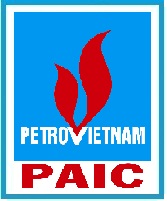 0936 1111 82
0936 1111 82Labor Code of Vietnam 2012 - Chapter II EMPLOYMENTS
Chapter II EMPLOYMENTS
|
|
VIET NAM LABOR CODE 2012(THE LABOR CODE OF VIETNAM)The Labor Code specifies the labor standards; the rights, obligations and responsibilities of the employees, the employers, the labor representative organizations, the employer representative organizations in the labor relation and other relations directly related to the labor relation, the State management of labor |
Chapter II
EMPLOYMENTS
Article 9. Employments and employment creation.
1. Employments are activities that generate incomes that the law does not prohibit
2. The State, the employers and the society are responsible to create employments and ensure that everyone capable of working is offered employment possibilities.
Article 10. The right to work of employees
1. The employee is entitled to work for any employer at any place that the law does not prohibit.
2. The employee may directly contact the employee or via the employment services to seek employment towards their expectations, vocational grade and health.
Article 11. The right to employ of employers
The employer is entitled to employ labor directly or via employment services, or outsourcing service providers. The employer is entitled to increase or decrease the labor depending on the production and business demand.
Article 12. The State policies on employment development support
1. The State shall determine the target for employment increase in the five-year and the annual socio-economic development plans.
Depending on the socio-economic condition in each period, the Government shall present the National Assembly to approve the National program of vocational training and employment.
2. Establishing the policies on unemployment insurance and incentives for employees to create self-employment, support employers that employ females, disabled people or people from ethnic groups.
3. Encouraging and facilitate the investment in production and business development of domestic, foreign organizations and individuals in order to create more employments.
4. Supporting employers and employees to seek and expand the labor markets overseas.
5. Establishing the National fund of employments to grant preferential loans for employment creation and other activities as prescribed by law.
Article 13. Employment programs
1. People’s Committees of central-affiliated cities and provinces (hereinafter referred to as provincial People’s Committees) shall establish and present the local employment programs to the People’s Council at the same level for approval.
2. Other employers, State agencies, enterprises, socio-political organizations, social organizations, within their scope of duties and authority, are responsible to participate in the employment programs.
Article 14. Employment service organizations
1. Employment service organizations shall provide consultancy, offer employments and provide vocational training to employees; supply and recruit labor at the request of the employer; collect and provide information about the labor market, and perform other duties as prescribed by law.
2. Employment service organizations include employment service centers and enterprises providing employment services.
Employment service centers are established and operated in accordance with the Government’s provisions.
The enterprises providing employment services are established and operated as prescribed by the Law on Enterprise and must obtain the Licenses to provide employment services issued by provincial State labor management agencies.
3. Employment service organizations are eligible for collecting fees, for tax exemption and reduction as prescribed by law provisions on fees and law provisions on tax.
Related News
- Labor Code of Vietnam 2012 - Chapter I GENERAL PROVISIONS
- Labor Code of Vietnam 2012 - Chapter III LABOR CONTRACT
- Labor Code of Vietnam 2012 - Chapter IV VOCATIONAL LEARNING AND TRAINING, VOCATIONAL SKILL AND GRADE IMPROVEMENT
- Labor Code of Vietnam 2012 - Chapter V DIALOGUE AT THE WORKPLACE, COLLECTIVE NEGOTIATION, COLLECTIVE LABOUR AGREEMENT
- Labor Code of Vietnam 2012 - Chapter VI SALARY
- Labor Code of Vietnam 2012 - Chapter VII WORKING HOURS AND BREAK HOURS
- Labor Code of Vietnam 2012 - Chapter VIII LABOR DISCIPLINE AND MATERIAL RESPONSIBLITY
- Labor Code Vietnam 2012 - Chapter IX LABOR SAFETY AND HYGIENE
- Labor code Vietnam 2012 - Chapter X PRIVATE REGULATIONS FOR FEMALE EMPLOYEE
- Labor code Vietnam 2012 - Chapter XI EXCLUSIVE PROVISIONS FOR UNDER AGE EMPLOYEE AND A NUMBER OF TYPES OF EMPLOYEE





















